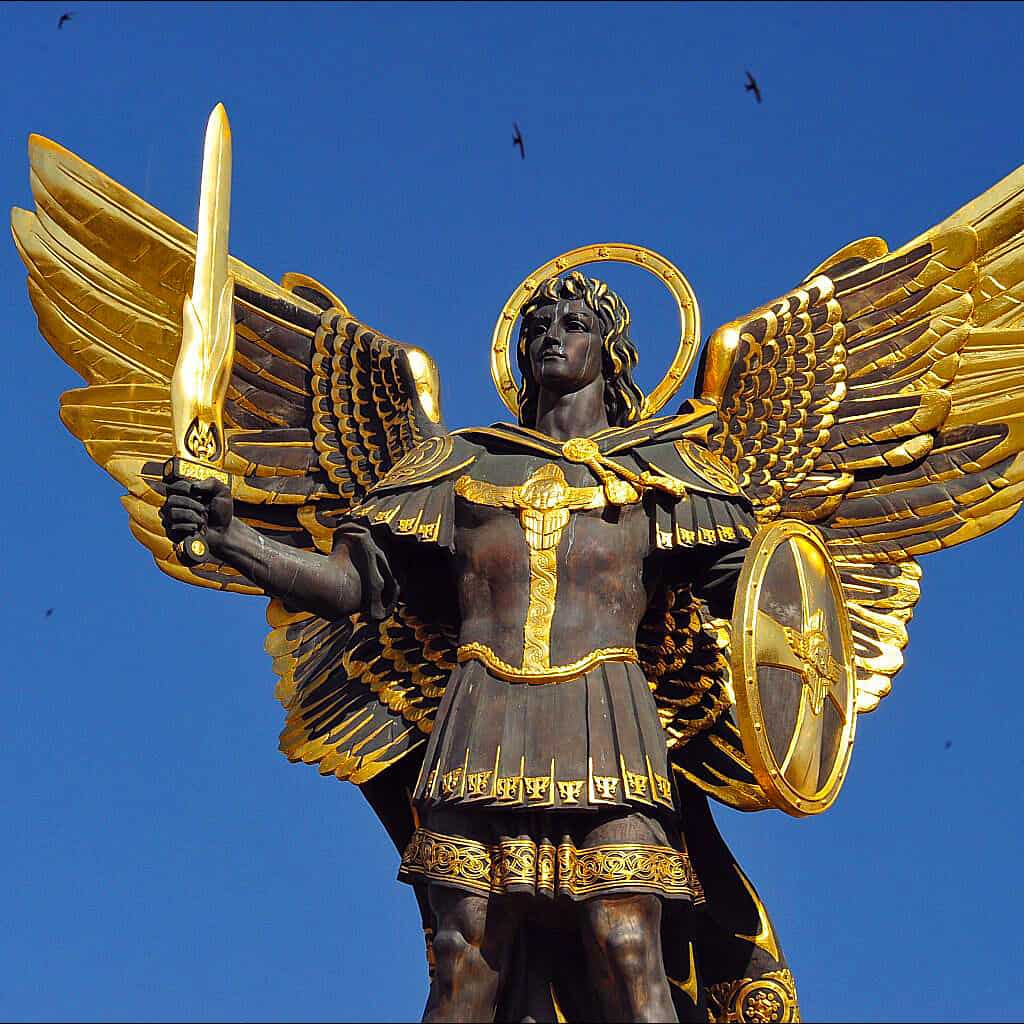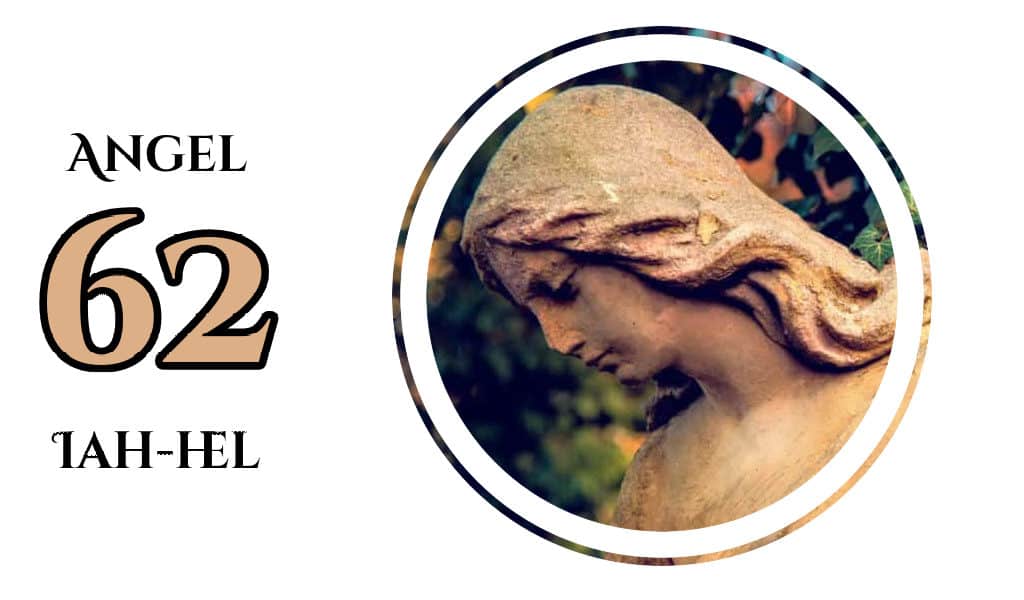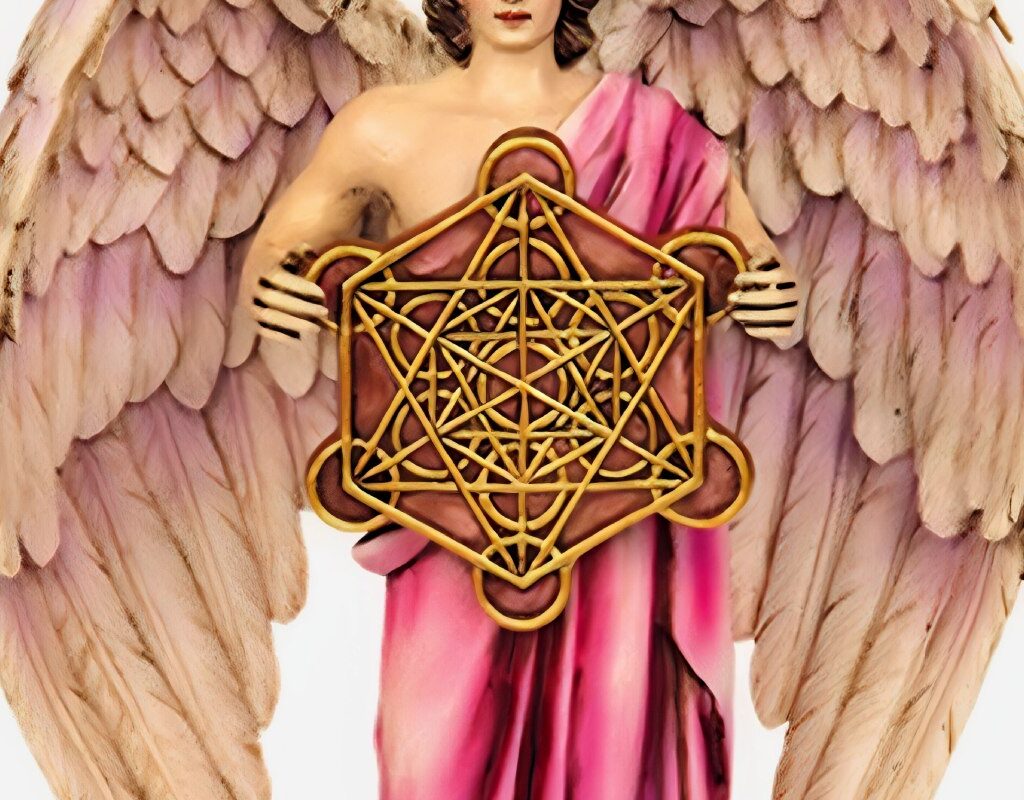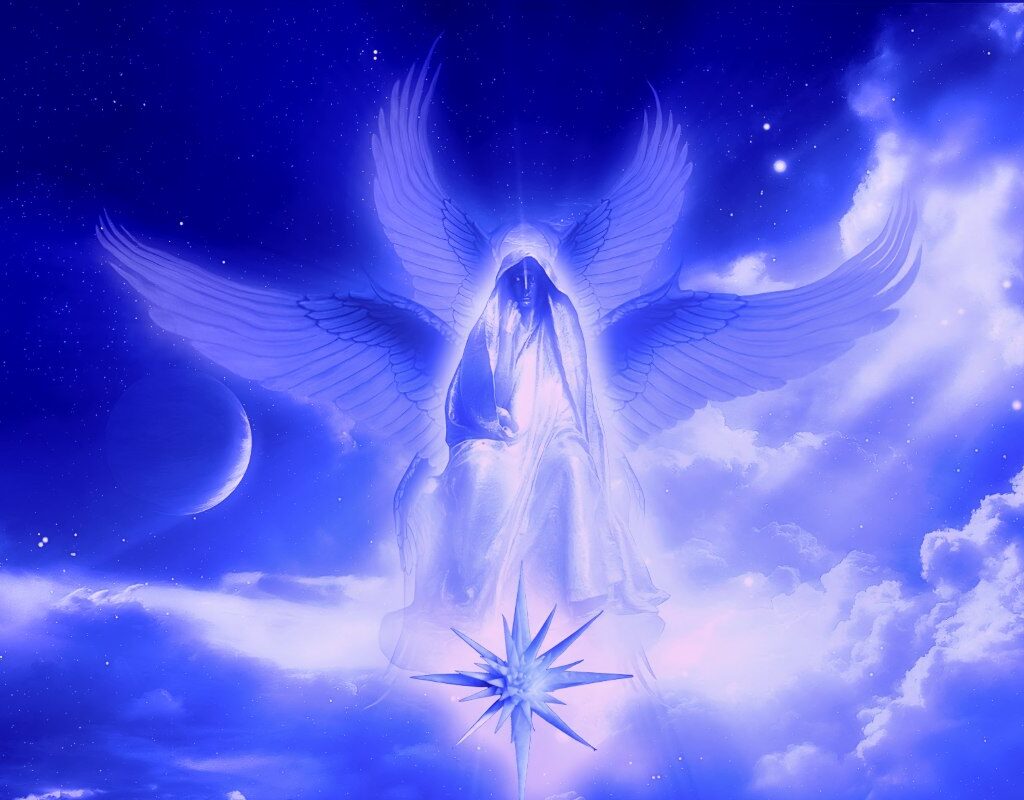Michael means in Hebrew (מִיכָאֵל) means “Who is like El?” (mi-ka-el). St. Michael is one of the chief Archangels; his name was the battle cry of the good angels in the battle waged in heaven against the enemy and his followers.
St. Michael the Archangel, Who is like God?
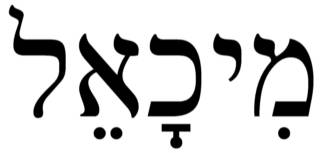
- Mi (מִי) = who?
- Ka (כָָּכָ) = as
- El (אֵל) = God (Elohim).
It is important to highlight the inquisitive character of “my”, meaning “who?”, at least 350 times in the Old Testament where this word is mentioned, in an inquisitive way, 24 moreover, the reading in Hebrew is from right to left.
The suffix “El” is also used regularly in other names, meaning “God” in all cases. For example Daniel (God is Judge), Immanuel (God with us) and Ezekiel (God’s Might).
Commander of the Heavenly Hosts
The archangel Michael is the commander of the heavenly armies. He expelled Satan and his rebellious angels and who will fight with the Dragon mentioned in Revelation.
His main function is to protect us from demonic forces and evil spirits and among the gifts, we can ask him for are courage and willpower.
Michael is the chief of the angelic army and the principal among the seven great archangels. It was he who defeated Satan (Lucifer) and his rebellious angels and who, according to rabbinic tradition, accompanied the Jewish people during their exodus through the desert.
Considered an angel of protection who has always been loyal and obedient to God, his name, of Hebrew origin, means “Who is like God?”, a rhetorical question that the same archangel used as an answer to Satan when the latter, in the middle of the combat, boastfully said:
Who likes me?
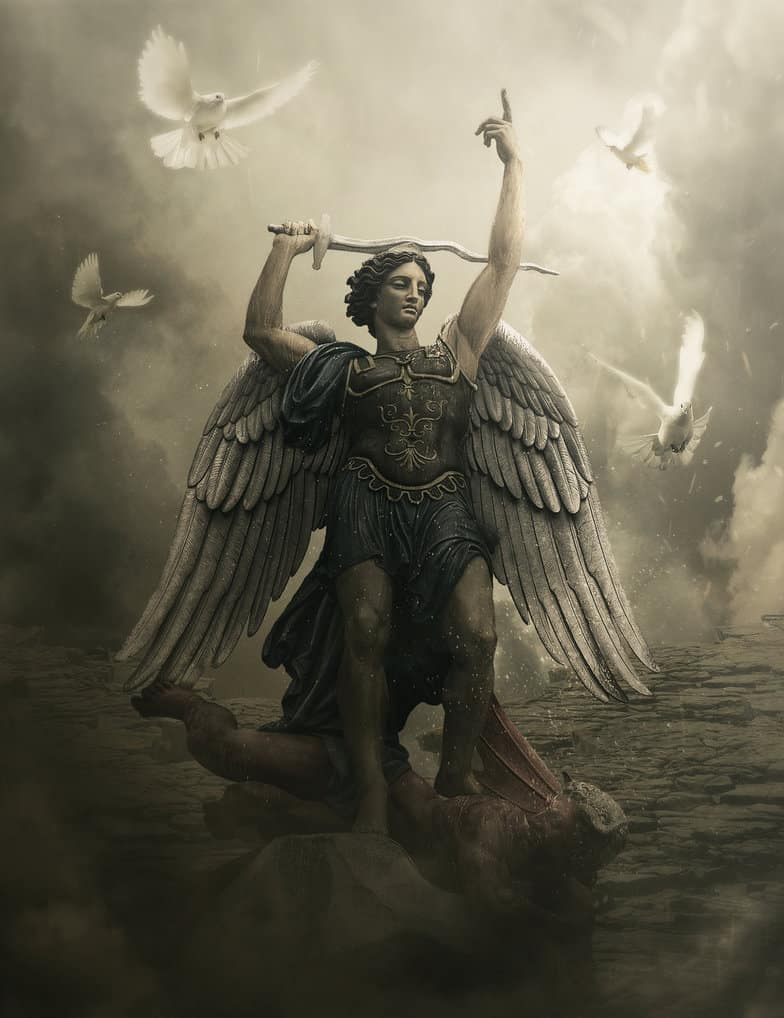
He, along with Gabriel and Raphael
He is one of the three archangels that the Catholic Church officially recognizes (since only those three are explicitly named in the Bible).
But his importance is so great that it exceeds by far the one that Catholicism grants him, being thus the most important angel in Judaism and, in Islam, one of the three angels that were presented to Mohammed.
Proof of this importance are the various denominations that have been granted to him:
“He who holds the keys of heaven”
“Chief of the Archangels”
“Prince of the Presence”
“Angelic Prince of Israel”
“Guardian of Jacob”
“Angel of the Burning Bush”
“Angel of Repentance, Righteousness, Mercy and Sanctification.”
The Archangel Michael in the Bible and Christian Tradition
The archangel Michael appears four times in the Bible:
Daniel 10:13: ”But the prince of the kingdom of Persia stood against me one and twenty days; and behold, Michael, one of the chief princes, came to help me and I remained there with the kings of Persia.”
Daniel 12:1: ”And at that time shall Michael stand up, the great prince that is for the children of thy people; and it shall be a time of trouble, such as never was since there were people until then: but at that time thy people shall be delivered, all they that are found written in the book”.
Epistle of St. Jude 1:9: ”But when Michael the archangel Michael contended with the Devil, disputing about the body of Moses, he dared not use cursing judgment against him, but said, “The Lord rebuke you””’.
Revelation 12:7: ”And there was a great battle in heaven: Michael and his angels fought against the dragon and the dragon and his angels fought.”
Apart from the above-mentioned, there are certain textual spaces in the Bible that, based on the elaborations of the so-called Fathers of the Church, are presented as controversial about whether or not the archangel Michael is mentioned.
Regarding these spaces, the priest and theologian Miguel Angel Fuentes has said the following:
“There is often controversy of St. Michael in Scripture where his name is not mentioned.
They say that he was the cherub who stood at the gate of paradise, to guard the way to the tree of life (Gen 3:24), the angel through whom God published the Decalogue for his chosen people, the angel who stood in the way to hinder Balaam (Numbers 22:22 ff.), the angel who smote the army of Sennacherib (II Kings 19:35).”
Through the above we can understand why the Christian tradition has assigned to the archangel Michael the following functions:
- To defend God’s people (Jews in the A.T., Christians in the N.T.),
- Fight against Satan and his demons,
- Save the souls faithful to God from the power of the Evil One, especially at the hour of death. Thus, in a time of religious fervor as was the Middle Ages, the archangel Michael was a patron of the Catholic Church and the orders of knights during the Middle Ages.
The Archangel Michael according to different religious creeds
Catholic Church
St. Michael the Archangel has been honored with a tradition of veneration that has existed from the beginning of the Church to the present day.
He also has the privilege of having his chaplet prayed with a rosary somewhat similar to that of the Virgin and has been associated with the protection of the human being, with the apparitions of the Virgin of Fatima and with the Eucharist.
The Church attributes four functions to him: to lead the heavenly militia, to be the guardian of the Church, to “weigh souls on a perfectly balanced scale” and to be “the angel of death”.
Opinions on his heavenly rank have varied: Salmeron, Bellarmine, St. Basil and other Greek Fathers have said that St. Michael was the prince of all angels, the highest in rank.
Others, like Bonaventure, said that he was the prince of the first angelic choir, that of the seraphim; on the other hand, St. Thomas said that Michael was the prince of the last choir, that of the angels.
Nevertheless, in the Roman liturgy, he is named “Princeps militiae coelestis quem honorificant angelorum cives”, which agrees with the criterion of the Greek Fathers. Finally, in the hymn of the Mozarabic Breviary, he is placed above the twenty-four elders.

